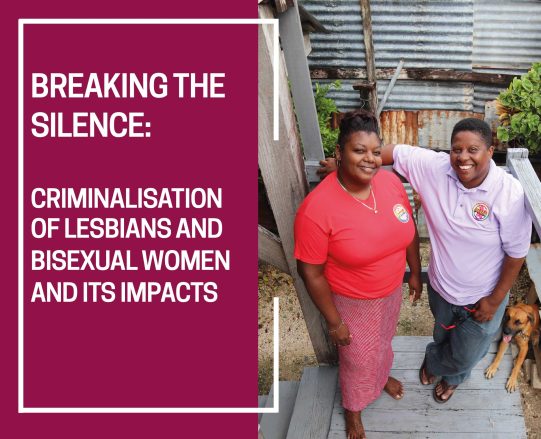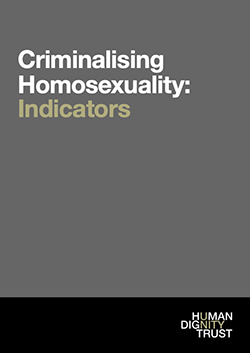
Criminalising Homosexuality: Indicators of Good Governance
This note examines how, in addition to the criminalisation of LGBT people being an indicator of poor governance and poor human rights in and of itself, countries that criminalise tend to rank poorly on other indicators too.
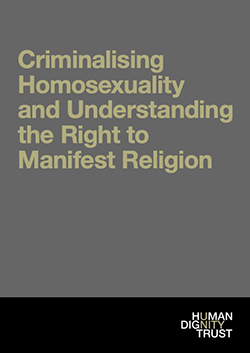
Criminalising Homosexuality and Understanding the Right to Manifest Religion
This briefing note explores points of connection between religion and the criminalisation of private, consensual, same-sex sexual activity.
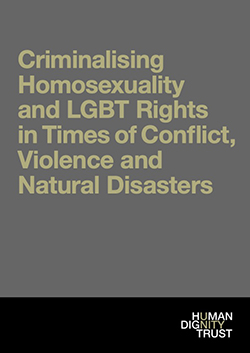
Criminalising Homosexuality and LGBT Rights in Times of Conflict, Violence and Natural Disasters
This note explores how during times of turmoil (conflict, natural disasters or widespread violence) the LGBT community can be further exposed to a specific type of violence and exclusion in countries criminalising private, consensual same-sex activity.
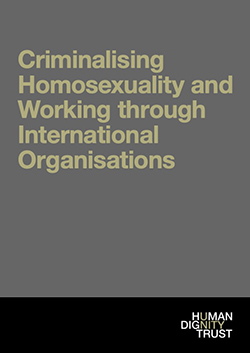
Criminalising Homosexuality and Working through International Organisations
This note investigates the role that international organisations have played in bringing about the decriminalisation of same-sex sexual activity in domestic legal systems. It looks at the historic, current and potential roles of the United Nations, the Council of Europe, the European Union, and the Commonwealth.
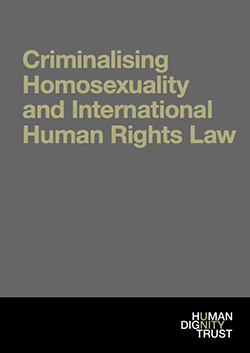
Criminalising Homosexuality and International Human Rights Law
This note explores how laws that criminalise private, consensual same-sex sexual activity contravene international law. Criminalisation infringes upon the rights to privacy, non-discrimination and dignity, and may amount to inhuman and degrading treatment.
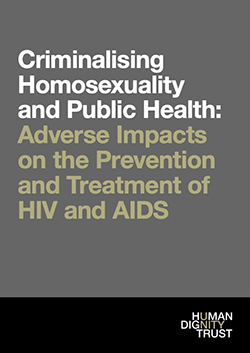
Criminalising Homosexuality and Public Health
This note considers the evidence on the link between the criminalisation of same-sex sexual activity and the prevalence and incidence of HIV, and addresses the human rights concerns associated with HIV and criminalisation.

